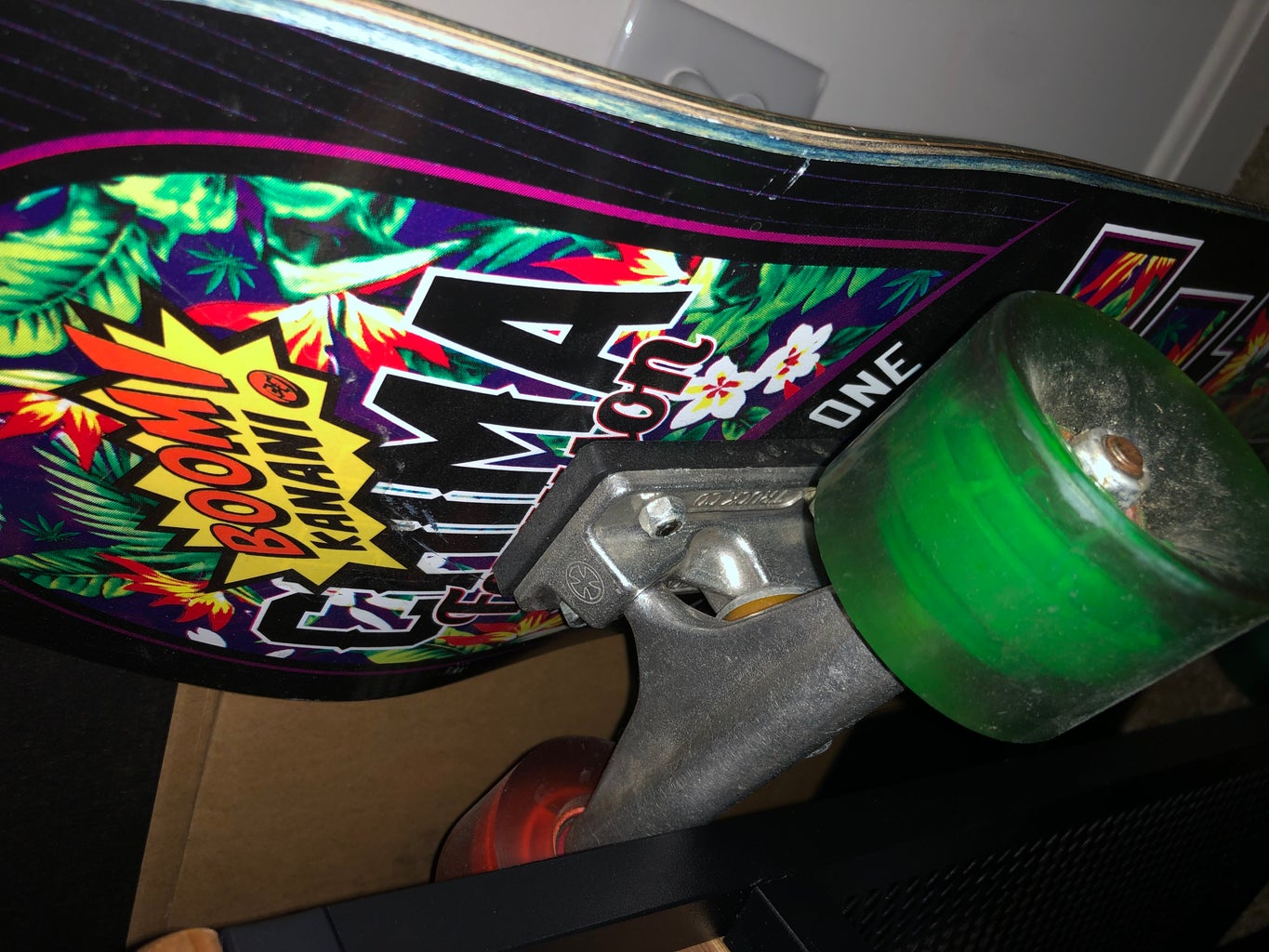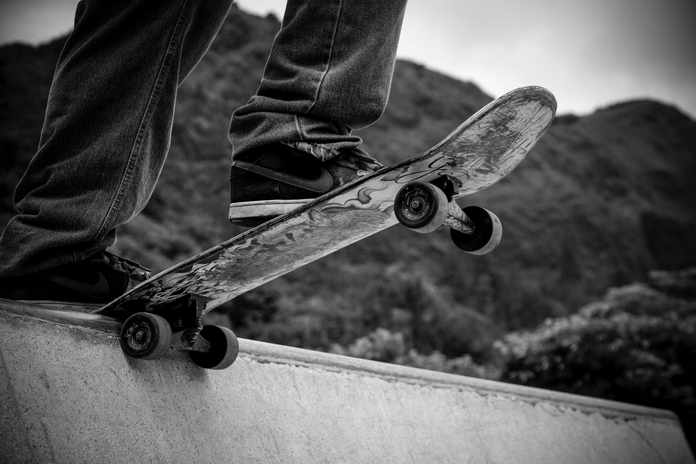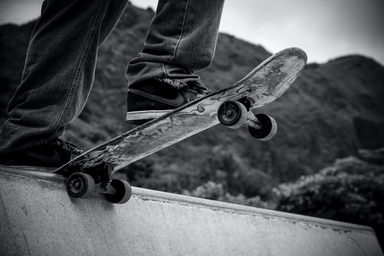Growing up, I identified skateboarding as an activity for boys. Boys in my classes in elementary school would play with their Tech Decks during class; boys would hang out at the skatepark; my brothers would play Skate 3 on the Xbox and never once think to invite me in on their game.
To be fair, I’ve never really been into sports. I had mandatory gym classes in high school, but skating wasn’t something that had ever crossed my mind. When I got older, I started dating the “typical skater boys” that my small town had to offer, becoming one of those girlfriends who would simply sit at the skatepark for hours on end. I became intrigued with the culture, learning the differences between different brands and styles of filming videos. Getting into skateboarding itself, however, meant I had to navigate a misogynistic boyfriend who refused to let me wear his Alltimers hoodies or introduce me to any of his friends at the park because, well, “I didn’t skate.” This introduction to skateboarding was intimidating at best.
Though I found the skate culture interesting, I didn’t think it would ever be for me. Every time I would see a girl skater in a video part I’d get so excited because of the rarity of the occurrence; the lack of female representation––not only in my town but also in the media––only reinforced the idea that skateboarding was a boy’s sport in a boy’s world.
By the time I met my current boyfriend, I had somewhat given up on the idea that I could ever learn to skateboard. I wasn’t expecting any radical changes to the skate world since the last time I had been immersed in it, though this experience was different. Sure, it definitely helped that I’d finally met an amazing guy who wanted to share his interests with me, but the environment he and his friends had cultivated throughout their many years of experience with the sport was one I’d never seen before. They encouraged me to get a board and start learning, were always happy to answer any of my questions, and always tried to include me when I’d hang out on the curb and watch.

In 2019 I discovered Skate Kitchen, an all-girls skate group based in New York City. Their movie, Skate Kitchen, is all about the stigmas they’ve faced being girl skaters in such a big city. These girls were the representation I’d been looking for since skating piqued my interest all those years ago, though it wasn’t until my boyfriend went on a trip to BC for a month with his friends that I finally decided to give it a go.
Because of the pandemic, I was back in my hometown and mostly too intimidated to join my boyfriend at the skatepark I’d been scared of the entirety of my high school years. I’d go occasionally, and though his friends were welcoming, I felt out of place without being on a board of my own. Though without someone to spend every day, all day long with for over 3 weeks, I thought it might be a good idea to make some new friends or start a new hobby.
By the time my boyfriend got home from Vancouver, I could almost ollie. I’d met three amazing girls I’d never befriended in high school who’d been skating for around a year who helped me pick out a whole setup at our local skate shop. Every day for nearly a month, I would meet them at the park after work and they would encourage me to try everything I was terrified of. I grew close with the skater boys who frequented the park as well, which is arguably the most surprising thing of all.
They cheered me on.

Anything I achieved, no matter how small, was celebrated. I remember when I went down my first ramp; bettered my ollies, landed my first shuv; did my first kickturn. Each feat was met with the same energy as when one of the guys who’d been skating for six years finally got the best clip of the craziest line I’d ever seen. All premonitions I’d had about the male-dominated culture of skating were eradicated. Yes, skating is still a male-dominated sport; but it is also the most welcoming community I’ve ever encountered. It’s the most frustrating, painful, rewarding sport I’ve ever done. It’s introduced me to a family I never thought I’d have, and guaranteed me, family, no matter where I go.
Skateboarding still intimidates me to no end––after five months I’m still a beginner, and my anxiety still makes me apprehensive about skating in new places around new people. But you have to start somewhere.
You’ll always find someone to hold your hand going down ramps, and I will forever be thankful for the hands that have found mine.



